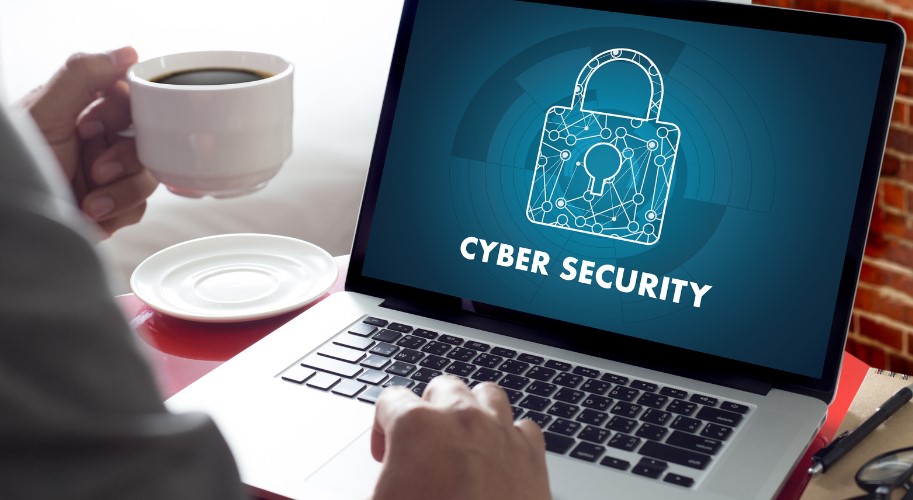Table of Contents
8 Ways to Improve the Cybersecurity of Your Business
Cyber-attacks are devastating for any business, often leading to financial loss, disruption, and significant reputational damage.
Small businesses are just as vulnerable to cyber-attacks as large corporations. Although they may be less of a big target, SMEs also have fewer resources with which to defend themselves. However, this does not mean there is nothing small organisations can do to protect themselves.
By taking a few sensible precautions, SMEs can mitigate risk and improve security. If you work within a small business, this blog post is for you.
Train and Re-train Your Employees
Your employees are at the front line of your business, answering emails, engaging with customers, and handling sensitive information, so it is likely that any chink in your company’s armour will come from them.

It may not be intentional. Sometimes simple human error – a misplaced work tablet; a weak password; opening a phishing email – can lead to catastrophe.
To make your employees an asset rather than a hindrance to security, establish clear policies for how to handle customer information and other sensitive data, and teach them how to recognise suspicious communications and links. Ask them to undergo this training every few months, to keep them up to date on the latest threats.
Use Antivirus Software and Keep It Updated
Employ antivirus software across all your company’s devices to protect them from malware, spyware, ransomware, and phishing scams.
Keep this software updated. The technology used by hackers is always improving, so the same should be true of your security.
Risk Assessments
Where is your company data stored and who has access to it? How do employees access the company network? How often do you update passwords?
Answering these types of questions will give you a clearer understanding of the strengths and weaknesses of your business’s security. If you store data on the cloud, you could also ask your provider to perform a risk assessment, showing you where you could improve security and how a breach could affect the company.
Review and refine your security strategy regularly, and whenever you make changes to how you use and store data. Penetration testing is a useful tool for seeing where your business’s weaknesses lie.
Back up Data
Most businesses could not function if all their data was deleted in a cyber-attack, so keep all your files and records backed up offline using a back-up program.
A program which copies your data on an automated schedule could make the difference between a bad security breach and a devastating one.
Secure Wi-Fi

Check that your business uses the most secure version of your Wi-Fi network, that you have changed the name of your router/access point, and that both the network and employee accounts utilise complex passwords, ideally using a password manager.
Limit Access to Sensitive Data
Restrict the number of people within your business who have access to sensitive data, such as customer accounts and banking information.
This will make a data breach less likely and establish clear roles with clear accountability.
Virtual Private Network (VPN)
With more and more people working from home, you must ensure all your employees, wherever they are, can access the company network securely. The best way to do this is with a VPN.
A VPN is an extra layer of security between your internet connection and the website or online service you are accessing, making it much harder for anyone to hack your connection, especially over an otherwise vulnerable public network.
Ensure All Third Parties Are Secure
You can take all the security precautions you want, but if a company or supplier you work with does not follow similar security policies, it may all be for nothing.
Don’t be afraid to ask potential partners for their security policy, to ensure any hacker will find it difficult to access your data through another’s network.
No business is completely safe from a cyber-attack, but by following these steps, you can make yourself as small a target as possible.




